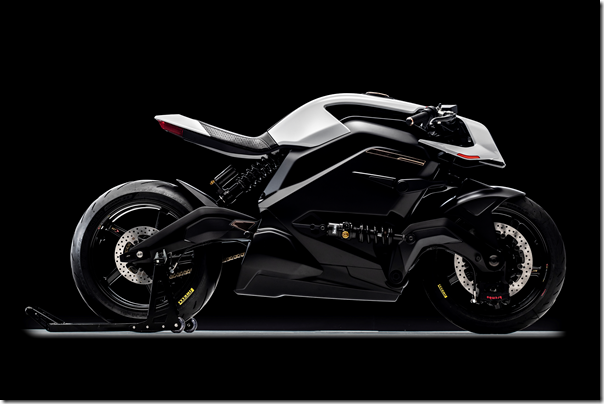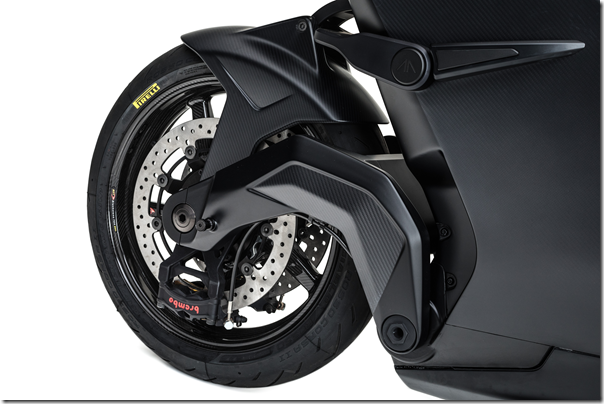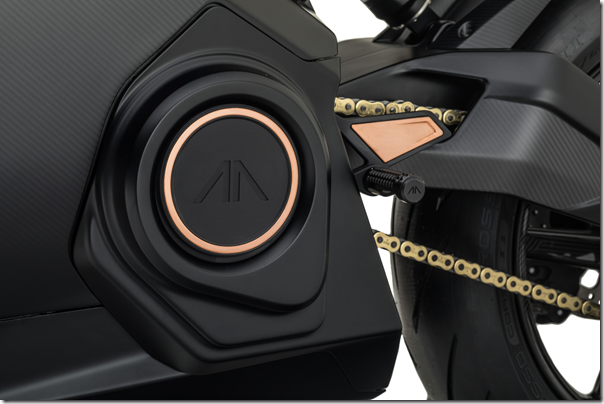Clever Structural Engineering for EV Motorcycle
Although the Vector is an innovative, electric, high-performance café racer, it also happens to be extraordinarily well-designed.
#hybrid
Electric vehicle batteries tend to be comparatively heavy and when you’re developing a high-performance café racer, the objective is to make it as light as possible. So Arc, a U.K.-based company that is developing the Vector racer, which has a 399-volt battery that produces 133 bhp and 109 lb-ft of torque, a top speed of 125 mph and a 0 to 60 mph time of three seconds, has done something rather clever: It is using a carbon-fiber monocoque that houses 960 Samsung 21-700 lithium-ion batteries and the motor so that it is both light and structurally stiff.

(Images: Arc)
The Vector has a mass (dry weight) of just 492.6 pounds.

Arc has tapped a number of well-known suppliers for components for the bike that is going to go into production next year at a facility in South Wales. Continental provides the anti-lock brakes, Brembo the brake discs, Ohlins the suspension, Pirelli the tires, and so on.
The bike is estimated to have an urban/ex-urban combined range of 270 miles.

The company anticipates that when the Vector goes into production 399 will be built to order in the first 18 months.
The starting price: £90,000.
RELATED CONTENT
-
Honda Rocks, Too
Maybe it has something to do with the start of summer.
-
Increasing Use of Structural Adhesives in Automotive
Can you glue a car together? Frank Billotto of DuPont Transportation & Industrial discusses the major role structural adhesives can play in vehicle assembly.
-
Multiple Choices for Light, High-Performance Chassis
How carbon fiber is utilized is as different as the vehicles on which it is used. From full carbon tubs to partial panels to welded steel tube sandwich structures, the only limitation is imagination.


.jpg;width=70;height=70;mode=crop)








